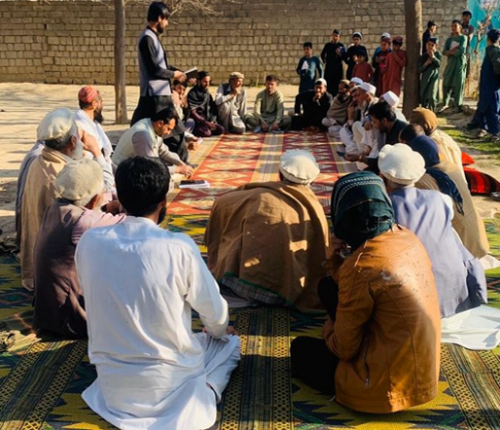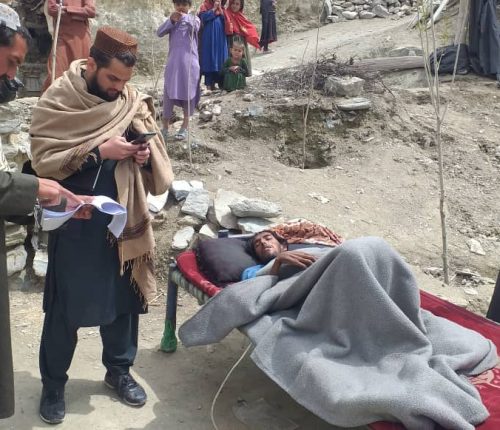The German Agency for Technical Cooperation (GTZ) signed a bilateral agreement with its Pakistani counterpart the Ministry of Science and Technology in Islamabad in order to initiate the Domestic Energy Saving Project (DESP). DESP had Pakistani as well as an Afghan component which was separated in 1989. Whereas the Pakistani Component was transformed into Fuel Efficient Cooking Techniques (FECT), while DESP remained as the Afghan component. The objective of the DESP was to contribute towards energy – conservation and environmental protection within the refugee camps of NWFP Pakistan. During 1991/2 DESP initiated cross border activities, which resulted in the implementation of numerous projects in the eastern Nangarhar province of Afghanistan. However, the cross – border activities were in contradiction to the bilateral agreement with the Pakistani counterpart, who insisted on the DESP’s sole responsibility towards working in the refugee context in Pakistan. 1993, it was decided that DESP would phase out on March 31, 1994. However, in order not to lose the experience gained by DESP over the course of its 10 years of operation, it was decided in a ZOPP- workshop (held on August 1993) that the Agency for Rehabilitation and Energy – conservation in Afghanistan (AREA) would be created. AREA was to take over all the activities of DESP and shift them inside Afghanistan. GTZ pledged to support the activities of the AREA. Thus in December 1993 AREA was officially created and on April 1, 1994, it acquired its full independence from the GTZ system.
Over the years, some key changes were made in the working strategy of AREA to transform it into a program-oriented organization rather than a donor –led project. Its current mandate focuses on working only through the direct involvement and participation of target communities.
The establishment and strengthening of the grassroots level institution at the community; village (in rural areas) or Guzar (in urban area) level is considered the basis for any future interventions. Aiming to empower local communities to come together, take collective decisions and responsibilities for the overall development in the target areas, has become the main objective of the organization. Since inception, the AREA has implemented different programs with the active involvement and participation of target communities to enhance their socioeconomic status.
AREA has a decentralized structure with offices in three different geographical zones in Afghanistan. Well-equipped Regional Offices in Kabul, Herat, and Nangarhar Provinces are responsible for carrying out projects/ programs in these and their surrounding provinces. The management in these offices is responsible for assessing, designing, developing, and implementing projects and programs within the framework of AREA’s long-term Strategic Plans, while the management at AREA Headquarters in Kabul is responsible for the technical support, overall control, and monitoring and evaluation of all projects/programs conducted by these Regional Offices.
The steady development and expansion of AREA have resulted in its recognition among international and national governments, the aid community, donors, and local communities as one of the reputable National NGOs operating in Afghanistan. Its good relations and partnerships at the National and International levels will be the key to its further success in the future. Today AREA is one of the largest and most reputable Afghan NGOs is operating in overall Afghanistan.


